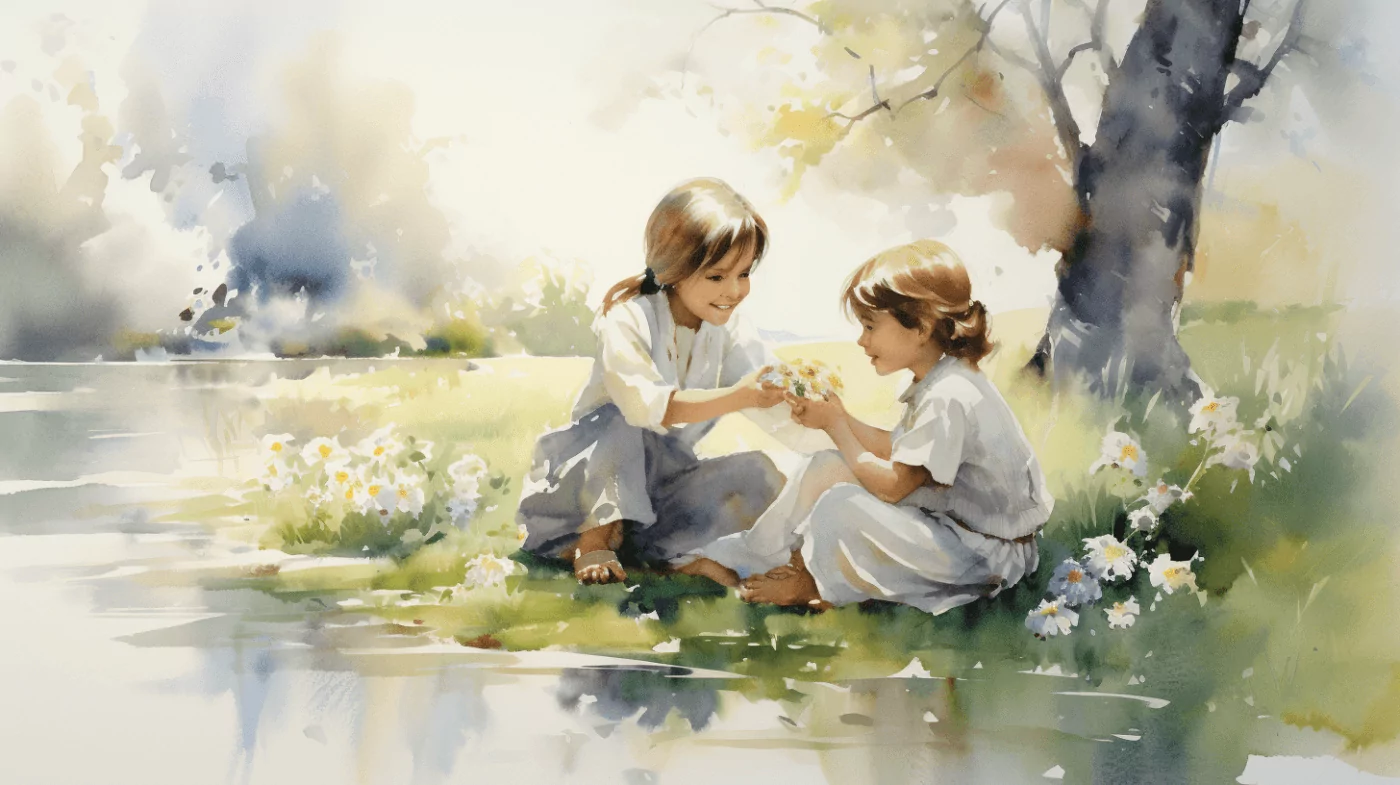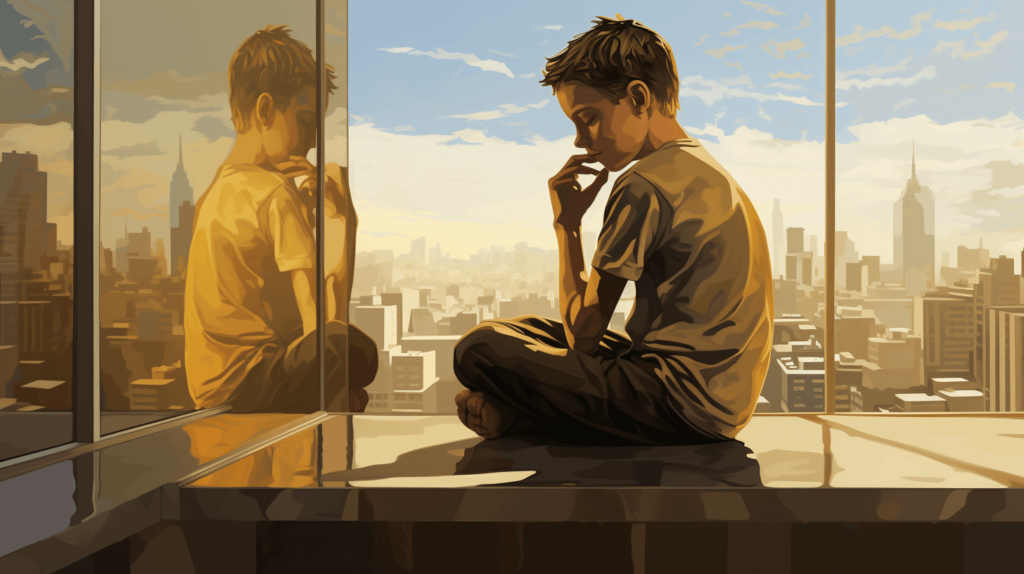Truth & Goodness
Poison on a Plate: What Drives Us to Eat Dangerously?
01 March 2026

The way we think about our childhood depends entirely on whether we associate it with experiences of joy and bliss, or rather with painful memories. If your only recollections from that time are positive, then reminiscing ‘about the good old days’ seems natural. And what’s more, our inner child can be very helpful in dealing with the everyday realities of adult life.
To fully understand the meaning of childhood, we must first focus on its core element: the child itself. It seems that what we refer to as a “child” is a biologically young member of our species who upon maturing loses its past status. But what if we were to use the term to refer to something beyond just age?
We all exhibit childlike behaviors. In fact, nobody wants to grow old, all of us would prefer to remain eternal children. Nothing wrong with that, actually, as the Bible reminds us of the encouraging words of Jesus, “become as little children” (Matthew 18:3), and “Suffer the little children to come unto me, and forbid them not: for of such is the kingdom of God” (Mark 10:14). Christ implied that innocence is an essential quality for those seeking salvation. He also often referred to childlike attributes, considering them as something to be cherished, and not suppressed.
That what is childlike in us is usually fragile and precious, while adulthood is usually associated with strength and the struggle for survival. A child is vulnerable and susceptible to hurt, which is caused by a lack of experience (that will be gained over time). This fragility arises from the inherent helplessness of a human being—perhaps one of the most significant markers of the human condition.
Finnish author Tommy Helsten, in his psychological book Hippo in the Living Room reminds us that despite advancements of civilization, humans remain as helpless and lonely as ever. Our primal, archetypal helplessness flows from our ignorance in regards to our origins and purpose in this world. One might even question if there are any definitive origins or a purpose at all. Humans do not understand the world they inhabit. Life, death, and the cosmos remain mysteries to us, just as we remain mysteries to ourselves. Our childlike sensitivity and fragility—born from that helplessness—manifest in our need of and dependence on others.
We are reliant on fellow human beings, whether we like it or not. This unceasing desire for the company of others is evident throughout our entire life, from the first to the last day. We enter this world out of the body of another human, surrounded by a group of people, and although one can die alone, their remains will also be tended to by others. An isolated person, left entirely to themselves, becomes ill and eventually dies.
Trustfulness is also another inherent childlike quality. A child is free from suspicion. From the early moments of its life, it expects the world to provide support. The child then transfers this trust to relations with other people, unaware of the fact that they can hurt each other. A kid is also honest, not inclined to lie. Everything is perceived as truth when you’re a little rug rat. This honesty can make them an easy target for people that take advantage of others. In a child’s world, there are no lie detectors. Deceit and breaking one’s word are things to be learned later, as one edges closer to the complexities of adulthood. The only act of lying a child is prone to is to play make-believe, a socially benign act of oscillating between the real and the imaginary.

One of the most extraordinary traits of a child is its intrinsic, unlimited and unabashed joy for life. A child is content with every gift life bestows. It doesn’t have to be an expensive item or a luxurious villa to live in—anything can bring a big smile to a little one’s face. Unlike adults, children find satisfaction in the simplest things. They are also unfazed by minor slip-ups. A child will gleefully run into a puddle, even though their mom is right behind them, shouting “Don’t go there, you’ll get wet!” Children are fine with a bit of awkwardness, they don’t put a price on anything, or project. Instead, they dive into the current of life, letting it carry them wherever it may lead. They embrace risk. It’s a paradoxical attitude of feeling certain in an uncertain reality, finding sense amidst chaos, and being ready for new discoveries and adventures. When a child rests, it is merely a pause to gather strength for the next journey, day after day.
While children are often cheerful, they, too, get sad sometimes. The nature of a child’s sadness differs significantly from that of an adult. For adults, prolonged sadness might lead to depression or, in extreme cases, even suicidal thoughts. However, for a child, sadness can be a healthy, transient emotion. Firstly, even if a child gets the blues, it seldom lasts long. Secondly, children accept sadness as an integral part of life, just like happiness. They seem to naturally understand that joy often follows sorrow. It doesn’t take much to lift a child’s spirits, as long as it helps them move past their grief and return to enjoying life. This straightforward attitude towards sadness is both admirable and worth emulating.
The end of childhood also marks the end of leniency for behaviors not tolerated in adulthood. It becomes necessary to control oneself, exhibit restraint, and master the art of diplomacy, sometimes struggling between truth, half-truths, and outright lies. While a poor little scamp will be forgiven for making an unfortunate remark about the weight of a lady seated nearby, an adult can’t hope for such soft-hardheartedness in the same circumstances. Over time, society stamps out childlike qualities in all of us, qualities that are genuine and precious. On the other hand, nobody could imagine living in a community where childlike traits are the dominant ones. So, why is it important to cherish these traits?
A child, rediscovered within ourselves and nurtured, can help us cope with one of the harshest aspects of adulthood—unhappiness. What our mature lives often lack, and what we constantly strive for, even willing to pay for, is the joy of life. Despite the abundance of material possessions and improvements in our daily lives, it appears that somewhere along the way we lost the ability to relish the little things. We find it hard to appreciate things as they are, as for us every day is a battleground, full of hardships to be endured. Yet, a child finds delight in both sunny weather and rain, enjoying the sight of raindrops streaming down a windowpane. Only a child can discover happiness in every place and in every thing.
A child often harbors fondness for others, which is not always true in the case of grown-ups. How frequently do we find ourselves complaining about our bosses, spouses, or—oh, the irony!—our children. But it is children who most readily express love for others, as they cannot fathom living in solitude. And since it’s impossible to live without others, it makes more sense to love rather than hate them. If only we could follow this rule as adults, life would be so much more bearable.
Searching for our inner child is not about regressing to naivety but about rediscovering the beauty of the world. It’s never too late to live more fully and mindfully. Embracing a childlike perspective doesn’t mean exhibiting infantile behavior; rather, it involves becoming more curious, less inhibited, and always ready to embark on new adventures.
Tłumaczył.: Przemysław Kołodziej

Truth & Goodness
01 March 2026


Zmień tryb na ciemny